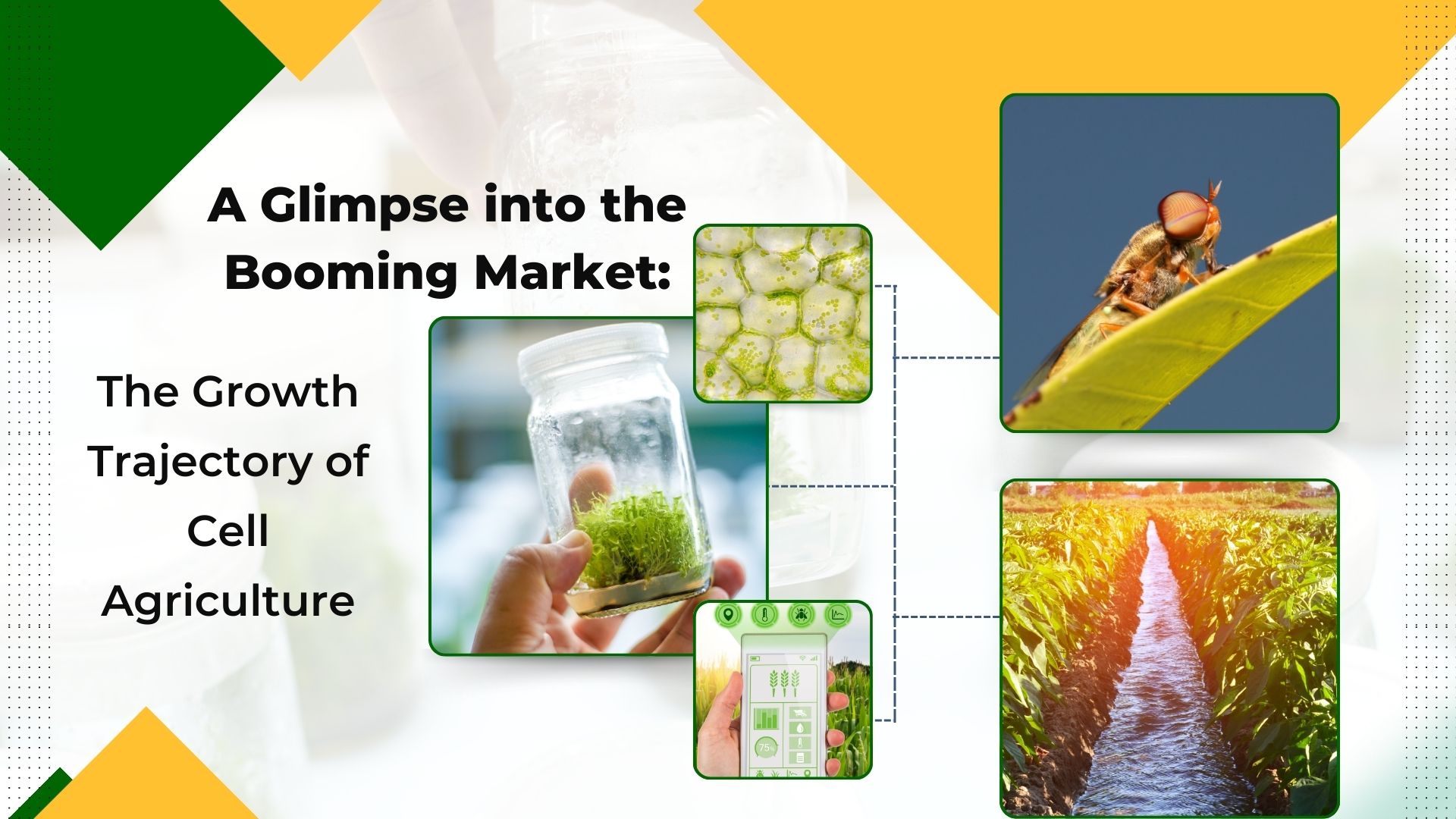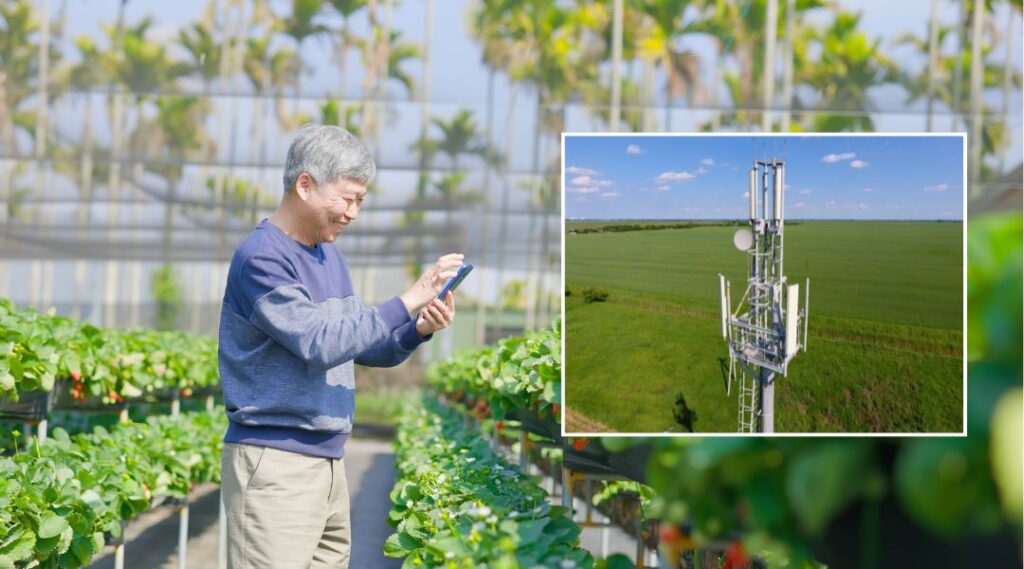
Introduction:
In an era marked by burgeoning populations, climate change concerns, and sustainability imperatives, the traditional methods of food production are facing unprecedented challenges. As the world grapples with the need for more efficient, ethical, and environmentally friendly food systems, cellular agriculture emerges as a pioneering solution, poised to revolutionize the way we produce and consume food.
Cellular agriculture, also known as lab-grown or cultured meat, involves producing animal products like meat, dairy, and leather from cell cultures instead of raising and slaughtering animals.
One of the most pressing challenges of conventional livestock farming is its significant environmental footprint. From deforestation for pastureland to methane emissions from livestock, the environmental toll is staggering. Globally, livestock is responsible for 14.5 percent of greenhouse gas emissions according to the Food and Agriculture Organization of the United Nations.
Table of Contents
Market Analysis of Cellular Agriculture:
Cellular agriculture has the potential to significantly reduce the environmental footprint of animal agriculture by requiring fewer resources such as land, water, and feed, and producing fewer greenhouse gas emissions.
Market analysis of cultured meat involves a multidisciplinary approach that considers technological, economic, environmental, and societal factors shaping the future of food production and consumption.
The market size and growth of cultured meat have been steadily increasing due to various factors such as growing concerns about sustainability, animal welfare, and food security. While still in its early stages, market research indicates significant potential for growth in the coming years.According to various reports and analyses, the global cultured meat market size is expected to reach billions of dollars within the next decade. Estimates vary, but many industry experts project a compound annual growth rate (CAGR) of over 20% during this period.


Let’s delve into the market size and growth of cultured meat specifically in the USA and Japan:
United States:
Market Size: The United States is one of the leading markets for cultured meat, with a robust ecosystem of startups, research institutions, and investors. Estimates suggest that the US cultured meat market could reach several billion dollars within the next decade.
Growth Factors: Factors contributing to this growth include:
Increasing Awareness: Growing concerns about sustainability, animal welfare, and health are driving consumer interest in alternative protein sources, including cultured meat.
Technological Innovation: The US is home to many companies at the forefront of cellular agriculture and biotechnology, leading to advancements in cultured meat production methods and cost reduction.
Supportive Ecosystem: The presence of supportive regulatory agencies, venture capital firms, and academic institutions fosters innovation and entrepreneurship in the cultured meat sector.
Investment and Research: Numerous startups in the US are actively developing cultured meat technologies, with significant investment from venture capital firms and corporations. Research institutions and universities are also conducting studies to improve the efficiency and scalability of cultured meat production.
Japan:
Market Size: Japan represents a significant market opportunity for cultured meat, given its dense population, high per capita meat consumption, and growing interest in sustainable food options. The cultured meat market in Japan is projected to grow rapidly in the coming years.
Growth Factors:
Food Security Concerns: Japan, like many other countries, is concerned about food security and the environmental impact of traditional meat production. Cultured meat offers a promising solution to address these challenges.
Technological Adoption: Japan has a strong tradition of innovation and technology adoption, making it well-positioned to embrace cultured meat as a sustainable protein source.
Regulatory Landscape: While Japan’s regulatory framework for cultured meat is still evolving, there is growing interest from policymakers in supporting the development and commercialization of alternative protein sources.
Consumer Acceptance: Japanese consumers are known for their willingness to embrace new food trends and technologies. As awareness of cultured meat grows and perceptions evolve, there is potential for widespread acceptance and adoption in Japan.
In summary, both the USA and Japan offer significant market opportunities for cultured meat, driven by factors such as increasing consumer awareness, technological innovation, and supportive regulatory environments. As the industry continues to mature, these markets are expected to play a key role in shaping the future of food production and consumption.
Several notable companies are involved in the field of cellular agriculture. Some of the most prominent ones include:
Impossible Foods: While primarily known for its plant-based meat alternatives, Impossible Foods has also expressed interest in exploring cellular agriculture for meat production.
Beyond Meat: Similar to Impossible Foods, Beyond Meat is known for its plant-based meat substitutes but has also shown interest in cellular agriculture as a potential avenue for future product development.
Memphis Meats: Memphis Meats is one of the pioneers in the field of cellular agriculture, focusing on producing lab-grown meat products such as beef, chicken, and duck.
Eat Just : Eat Just is also known for its plant-based egg products under the JUST Egg brand, which millions of families enjoy today from San Francisco to Shanghai.
Aleph Farms: Aleph Farms is an Israeli-based company specializing in the production of cultivated beef steaks using 3D bioprinting technology.
Mosa Meat: Mosa Meat is a Dutch company credited with creating the world’s first lab-grown hamburger patty in 2013. They continue to research and develop cultured meat products.
Future Meat Technologies:
Future Meat Technologies is an Israeli-based company focused on developing scalable methods for producing cultured meat at a competitive cost.
These companies, along with many others, are driving innovation and research in the field of cellular agriculture, with the goal of making lab-grown meat and other animal products accessible and sustainable alternatives to traditional agriculture.
But the challenges of scaling up production and reducing manufacturing costs are significant. And there is still uncertainty around public perception and regulatory treatments of these products.
As we stand at the cusp of a paradigm shift in food production, cellular agriculture emerges as a beacon of hope, offering a pathway towards a more sustainable, ethical, and resilient food system. While the journey ahead may be fraught with challenges, the transformative potential of cellular agriculture to reshape the way we nourish ourselves and sustain the planet is undeniable. By embracing innovation, collaboration, and a shared commitment to a better future, we can cultivate a world where food production harmonizes with the principles of environmental stewardship, animal welfare, and human health. The seeds of change have been sown; it is time to reap the harvest of possibility.
“The promise of cellular agriculture lies in its ability to provide nutritious, delicious, and sustainable food without the need for intensive animal farming.”
The AgriNext Awards,conference , & Expo
The AgriNext Awards,conference , & Expo, a premium event by next business media , serves as a pivotal gathering for agricultural innovators, researchers, policymakers, and industry leaders to converge and explore the forefront of agricultural advancements. With a focus on sustainability, technology integration, and global food security, the conference provides a platform for discussions, knowledge exchange, and collaborative initiatives aimed at addressing the pressing challenges facing the agricultural sector. From precision farming and smart irrigation to biotechnology and agroecology, AgriNext Awards, conference & Expo showcases cutting-edge solutions to foster a more resilient and productive agricultural future.
Signup For AgriNext Conference Newsletter

